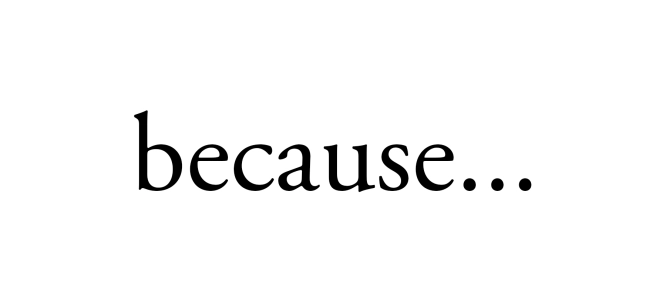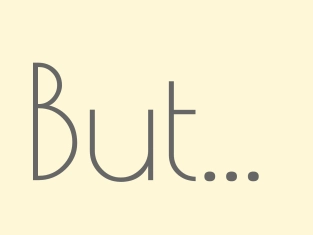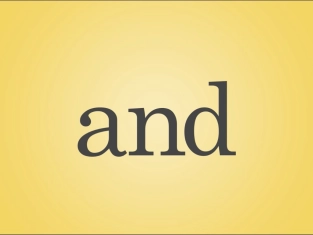by PushtoLearn
Can You Start a Sentence with Because?
Table of Contents
Let's delve into the common belief that starting a sentence with “because” is wrong. This notion often originates from early schooling but isn’t entirely accurate. You can indeed begin a sentence with “because” as long as it completes an independent clause. The sentence must convey a complete thought, leaving no ambiguity.
What Is “Because” and Where Can You Use It?
“Because” is a conjunction used to introduce cause-and-effect relationships within sentences. For instance, “I stayed home because it was raining,” or “She was late because the traffic was terrible.” In both cases, “because” establishes a direct link between a situation and its outcome, clarifying why something happened.
Conjunctions like “because” are essential for sentence structure. They connect clauses to add logic and depth to our explanations, often linking similar parts of speech, such as two nouns or two independent clauses.
Examples and Explanation for Using "Because" at the Start of a Sentence
Starting a sentence with “because” can be tricky, but when done correctly, it’s perfectly grammatical. Let’s explore some examples to understand when it works and when it doesn’t.
✔️ Correct Usage: "Because I was tired, I went to bed early."
Here, “because” introduces a complete thought that explains why I went to bed early. The phrase “I was tired” is a full clause (it has a subject and a verb), and “I went to bed early” can stand alone as a sentence. This balance makes the sentence grammatically correct.
❌ Incorrect Usage: "Because I was hungry."
This sentence is incomplete. It sounds like it’s leading into a fuller statement but ends up hanging. The main issue here is that “Because I was hungry” is not a complete sentence; it’s a dependent clause that needs an independent clause to complete the thought, like “I ate a sandwich.”
✔️ Correct Usage: "Because of the rain, the game was canceled."
Here, “because” leads into a reason that directly connects to the action that follows. Both parts of the sentence are complete clauses, making this a correct and effective use of “because” at the start.
❌ Incorrect Usage: "Because of the rain."
Similar to the previous example, this one leaves you expecting more. Without a following independent clause, like “the game was canceled,” it feels unfinished and leaves the listener or reader hanging.

Tips on Using "Because" Correctly
⭐ Check for a Complete Idea: Ensure the sentence starting with “because” is complete by looking for a full thought following it. The clause after “because” should be able to stand alone as a sentence if you remove the “because.” For example, “Because I was late, I missed the bus.” Removing “because” leaves two full sentences: “I was late” and “I missed the bus.”
⭐ Extend Incomplete Sentences: If you have a sentence like, “Because I was hungry,” it feels incomplete. Extend it to include a result: “Because I was hungry, I ate an entire pizza.” Now it’s a complete thought.
⭐ Flip the Structure: If you’re unsure, start with the outcome and then explain the reason. “I ate an entire pizza because I was hungry.” This switch can often make it easier to spot whether your ‘because’ clause is dependent or independent.
Remember, “because” introduces the reason for an action. When this reason is followed by a clear action, it makes your sentence complete and your writing crisp. Keep practicing, and soon using “because” will be a breeze!
FAQ
Can you begin a sentence with “because”?
Yes, you can start a sentence with “because” as long as it introduces a complete clause. For example, “Because I was late, I missed my train.” Here, both parts are complete clauses, making the sentence grammatically correct. Just make sure the “because” clause explains the reason clearly.
What to use instead of “because” at the start of a sentence?
If you prefer not to start a sentence with “because,” you can use alternatives like “since,” “as,” or “due to.” For example, instead of saying “Because it was raining, the game was canceled,” you could say, “Since it was raining, the game was canceled.”
What words can you not start a sentence with?
Traditionally, it was taught that conjunctions such as “and,” “but,” and “so” should not start sentences. However, in modern writing, beginning sentences with these words is acceptable for style and emphasis. Just make sure it fits the tone and flow of your text.
Can you start a sentence with “because” in a research paper?
Yes, you can start a sentence with “because” in a research paper, but it must be done carefully. Make sure that the sentence includes a full independent clause to maintain academic formality and clarity. For example, “Because the study highlighted these issues, further research is necessary.” This maintains a formal and logical structure.

